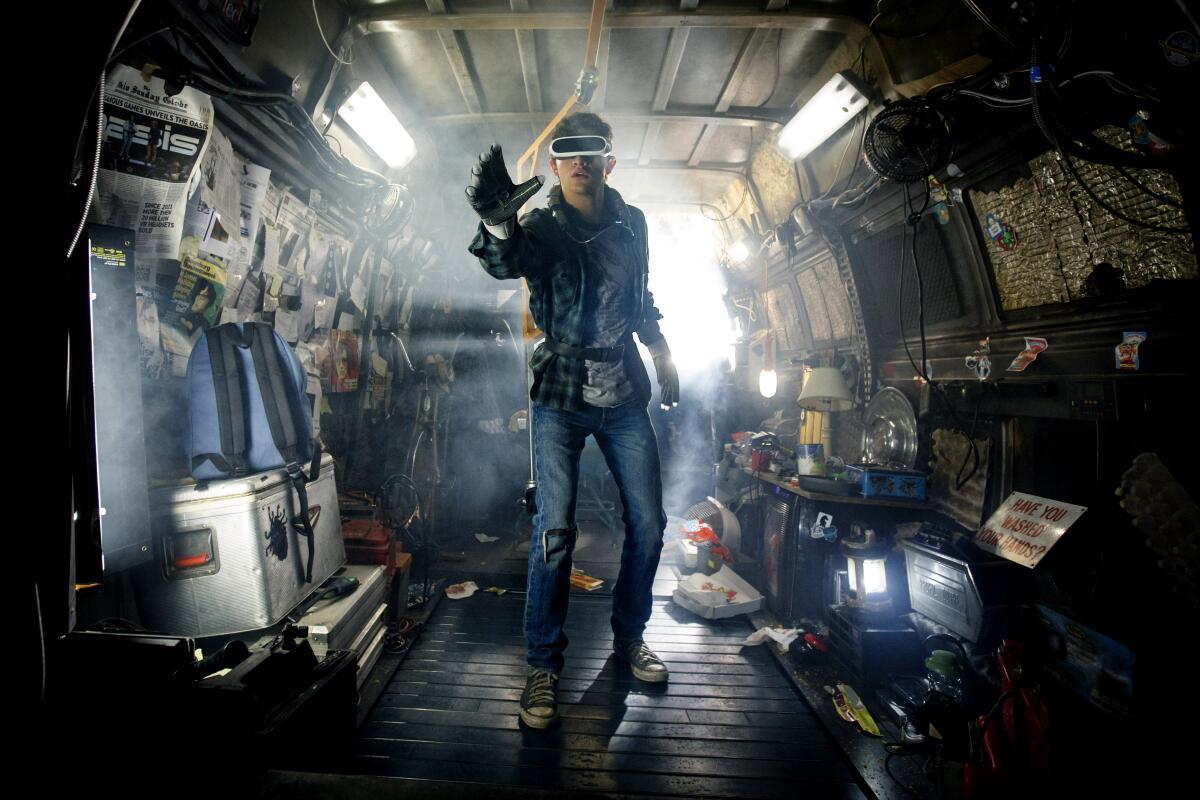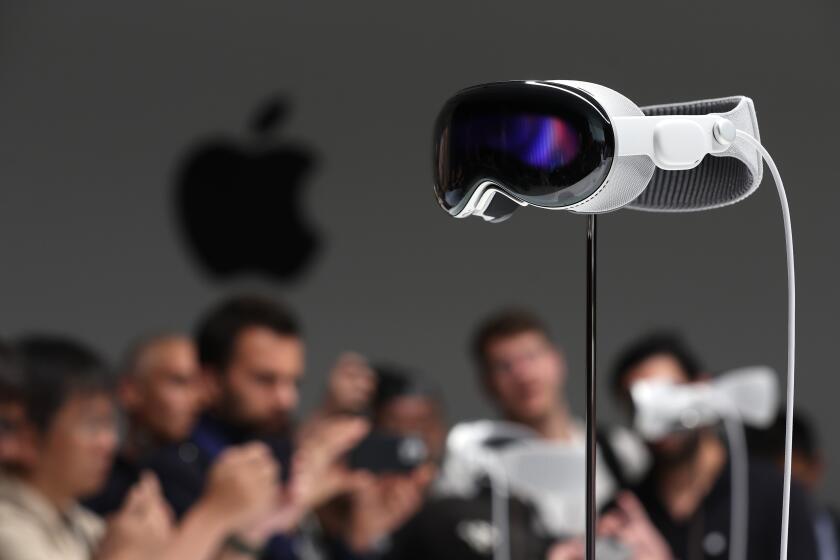‘Ready Player One’ IRL? How Ernest Cline is making his metaverse dream a (virtual) reality

- Share via
In the dystopian sci-fi novel and film “Ready Player One,” future humans spend much of their lives in the OASIS, a virtual reality wonderland in which “the limits of reality are your own imagination.”
Now, a virtual world inspired by OASIS is being brought to life.
“Ready Player One” author Ernest Cline and one of the film’s producers, Dan Farah, are working with an artificial intelligence technology company to launch a metaverse, or an interactive 3-D virtual world, similar to the one depicted in the novel and the 2018 Steven Spielberg-directed film adaptation released by Warner Bros.
The company behind the new venture is called Futureverse, which is run out of New Zealand and Los Angeles. The partners are working with media giant Warner Bros. Discovery to start bringing the “Ready Player One” franchise to the metaverse early this year. The new online world, dubbed the Readyverse, will be filled with digital experiences, like games and places to hang out with friends virtually through VR headsets and other devices.
The draw of the Readyverse, Cline said, is that it creates an environment for people to spend time with the characters and worlds they could previously only reconnect with by watching a movie multiple times.
“Now you can actually be in the world of those characters, with those characters, and share that experience with your friends and go on adventures with those characters,” Cline said. “The possibilities are endless.”
Technology like virtual reality and concepts such as the metaverse have attracted interest from venture capital investors, tech futurists, and corporations such as Facebook parent Meta, Walt Disney Co. and Apple. But many mainstream consumers remain skeptical — and at times, confused. Having content from Hollywood studios has long been seen as a way to take the virtual reality business mainstream.
For entertainment companies like Warner Bros., virtual reality provides a chance to get some more mileage out of their established intellectual property and reach new tech-savvy audiences. The “Ready Player One” movie, a solid box office hit with $583 million in worldwide ticket sales, did much to introduce general audiences to the metaverse idea, as did films like “The Matrix” and books such as William Gibson’s “Neuromancer” before it.
An investor and tech futurist thinks the metaverse will revolutionize everything. That includes Disney and the rest of entertainment.
To bring “Ready Player One” to (virtual) life, Futureverse, Cline and Farah have launched Readyverse Studios, a Los Angeles-based firm with about 30 employees. The goal, said Futureverse co-founder Aaron McDonald, is to eventually incorporate characters and worlds from all over the internet into the Readyverse — similar to how the “Ready Player One” film brought in IP such as Batman, Freddy Krueger and Marvin the Martian.
“We are definitely going to give people the opportunity to explore the environments and the characters and the objects and stuff like that that comes from the books and from the ideas from the movie,” McDonald said. “That includes virtual spaces and avatars and all those kinds of things that people can kind of own and participate in.”
The move to bring “Ready Player One” IP into the metaverse marks the latest attempt to bridge the divide between traditional entertainment and virtual reality. Disney launched a metaverse division to bridge experiences from its parks with its streaming service Disney+ and other aspects of the company, but that unit was shuttered last year after then-Chief Executive Bob Chapek was fired and Bob Iger moved to restructure the company.
Technology companies like Futureverse are looking to partner with studios in their efforts to explore the metaverse and prove it’s not just a buzzword. The company launched a $50 million fund and venture studio called Born Ready, raising $54 million for Futureverse. Futureverse has worked with major brands including Reebok, while delving into AI gaming with FIFA on iOS and Android, as well as Authentic Brands Group, the IP rights holders of Muhammad Ali Enterprises, to release the first AI-powered boxing game, “Muhammad Ali — the Next Legends.”
In that sense, tackling a Hollywood franchise seemed like the logical next step.
Two years after Mark Zuckerberg bet his company on a virtual reality future, Apple in effect declared that vision dead with its announcement of a decidedly antisocial face computer.
Futureverse co-founder Shara Senderoff said the metaverse hasn’t “come to life” in this way before because technology “hasn’t been ready to make it easy for the mainstream.” But the technology is available now, she said, making the Readyverse possible.
Readyverse users will be able to seamlessly go wherever they’d like in the virtual world with the things that they’ve purchased, Senderoff said. A digital world allows for experiences created through micro-transactions, she said, where users can purchase something like new skins, or in-game looks, for a few dollars.
“What digital in general allows us to do is it allows us to create more bridged experiences and more expanded experiences of IP,” she said.
Cline is excited to see those types of transactions in the Readyverse because they provide a sense of wish fulfillment, he said — a theme he explores in the book. Like many of the ideas in “Ready Player One,” they’re becoming reality faster than even he anticipated.
“The ability to buy anything that you can imagine, things that are out of your reach in the real world and things that don’t exist in the real world, like helicopters or super yachts or a Lamborghini — you could have any of that,” Cline said, “and then actually use those things as vehicles.”
Or, he said, you could keep those trophies around for the bragging rights.
More to Read
Inside the business of entertainment
The Wide Shot brings you news, analysis and insights on everything from streaming wars to production — and what it all means for the future.
You may occasionally receive promotional content from the Los Angeles Times.













